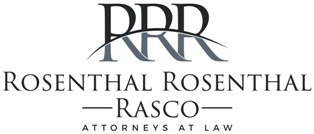What Are Gray Market Goods? – Legal Overview
Is reselling illegal?
A recent decision by the United States Supreme Court in the case Impression Products v. Lexmark International Inc. ruled that patent-protected goods can be freely sold after the first authorized sale. This ruling solidified the legality of importing used goods for resale in the U.S., which favors consumers and discount retailers.
What is the Gray Market?
Gray market (or grey market) refers to a trade of goods through distribution channels unintended by the original manufacturer. This practice is legal.
The term originates from the 1980s when the practice of reselling the product to other resellers instead of selling it to the end user became widespread. Gray market should not be confused with the black market, which refers to the distribution of illegal or stolen products.
Gray market goods are non-counterfeit products sold outside regular distribution channels by entities unrelated to the original product manufacturer or patent proprietor. These commodities are usually electronic equipment or luxurious goods that have a high price difference across the world. Simply put, entrepreneurs buy the product where it’s cheaper, import it legally to the desired market, and then resell it at a higher price but below regular market price.
Laws on Reselling Products
Gray market and gray market products are regulated by state civil codes or statutes (example: California Civil Code, CHAPTER 4. Grey Market Goods). The U.S. Customs Services rules and regulations are also important for this matter. Currently, there is no Florida statute regulating gray market products in general.

Restrictions on the Importation of Gray Market Products
For the protection of U.S. registered trademarks, the U.S. Customs Service limits the admissibility of foreign trade names and trademarks if they resemble or appear identical to those registered in the U.S. These goods may be subjected to forfeiture or seizure.
U.S. Code of Federal Regulations (CFR) regulates these situations under § 133.23 (restrictions on importation of gray market articles).
In order to benefit from the protections afforded under C.F.R. § 133.23, U.S. trademark owners must meet the following conditions:
- Trademark must be registered with U.S. Customs and Border Protection through the Intellectual Property Rights e-Recordation systems; and
- U.S. trademark and the foreign trademark must be owned by two different entities (persons or companies)
If these conditions are met, all incoming gray market goods are subject to “restricted” scrutiny.
Exceptions to Restriction
In the case of gray goods detention, the importer must prove that the goods mark fits one of the exceptions:
- the foreign trademark was applied by the foreign owner who is the same as the U.S. owner
- domestic and foreign goods which bare the same name or mark are physically and materially identical
Requesting a sample of detained or seized merchandise alleged to bear a counterfeit trademark is a key to challenging detention successfully.
Litigation in Gray Market Disputes
The complexity of this area of law demands an experienced trial attorney to litigate and handle cases in related disputes.
At Rosenthal Rosenthal Rasco, we provide comprehensive legal solutions for commercial litigation and product liability cases. Contact us today.
Author: Joshua E. Rasco

